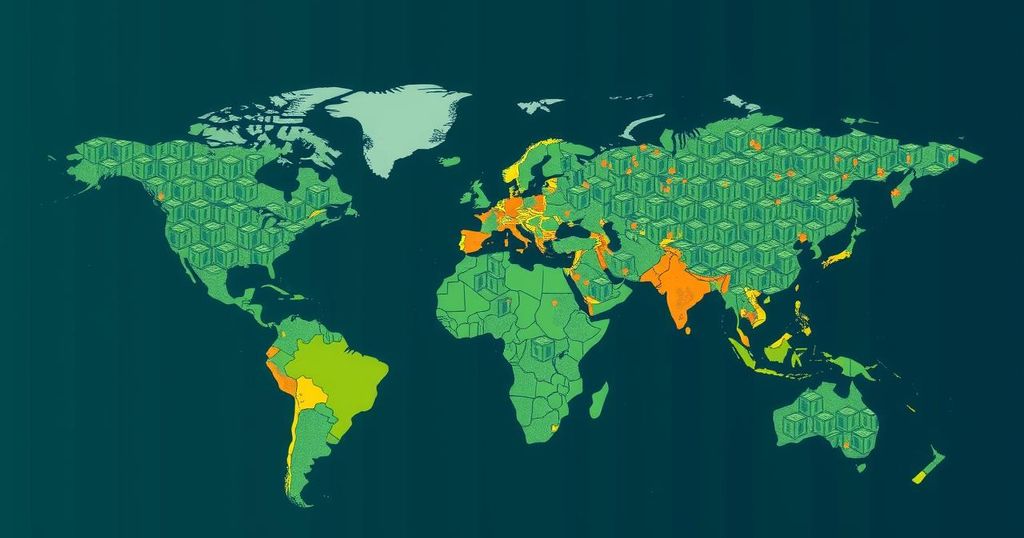Richer Nations Begin Funding Climate Change Relief for Developing Countries

Richer nations are beginning to compensate poorer countries for damages caused by climate change, as seen in Malawi after Cyclone Freddy. Christopher Bingala, a beneficiary, received $750 to rebuild his home. As countries negotiate for a formal compensation fund, the need for more substantial financial assistance becomes increasingly critical amid worsening climatic events.
The repercussions of climate change are acutely felt in low-income nations, especially in the face of unprecedented natural disasters. In Malawi, Christopher Bingala’s life was irrevocably altered when Cyclone Freddy inundated his home, resulting in the loss of his property and livestock. Despite the devastation, Bingala received approximately $750 as part of the “loss and damage” compensation scheme—an initiative that aims to address the financial impacts of climate change on developing countries. This program is indicative of a broader commitment by wealthier nations to assist those disproportionately affected by climate-related disasters, despite their minimal contribution to global greenhouse gas emissions.
The devastation from Cyclone Freddy was extensive, displacing around 650,000 individuals in Malawi alone. The severity of the storm resulted in the country experiencing six months’ worth of rainfall within just six days. Following the cyclone, Bingala and his family found temporary shelter and were faced with dire food shortages. He recounted, “We got to a point where we would eat meat from animals that had died from the cyclone because we lacked food.” This bleak reality motivated him to use the aid he received to relocate and rebuild in a lower flood risk area.
Scotland has taken a notable lead by being the first nation to allocate dedicated funds for loss and damage, distributing financial aid through organizations like GiveDirectly. Approximately 2,700 families in Malawi received similar payments, which allowed them to recover from the cyclone’s aftermath by rebuilding homes and reinvesting in their livelihoods. As Yolande Wright from GiveDirectly emphasizes, “Low-income households in low-income countries have far less protections from extreme events.”
The necessity for such aid is expected to escalate as climate-induced disasters become more commonplace. The World Bank is expected to house the fund established for loss and damage compensation, but there are ongoing discussions regarding its operational guidelines. Many advocate for the fund to cater not solely to disaster recovery but also to initiatives such as community relocations and ecological restoration.
Prime Minister Philip Davis of the Commonwealth of the Bahamas articulated the criticality of this funding, highlighting that 40% of his nation’s debt can be directly linked to climate change events. He stated, “If they do nothing, they will be the worst for it.” As the global community convenes to finalize contributions, the imperative for richer nations to acknowledge their role and assist those stricken by the impacts of climate change has never been more urgent.
Climate change has emerged as a significant challenge for vulnerable nations, particularly those with limited resources to adapt and recover from natural disasters. The phenomenon has led to an increase in extreme weather events, adversely affecting agricultural productivity, livelihoods, and housing. Countries like Malawi, which have contributed very little to global greenhouse gas emissions, often find themselves enduring the most severe consequences of climate change. In response, wealthier nations, through international accords, are beginning to establish funds aimed at compensating developing nations for the losses incurred due to climate crises, reflecting a growing recognition of shared responsibility in addressing climate impacts.
In conclusion, the launch of loss and damage compensation programs signifies a crucial step towards equitable climate action, as wealthier nations begin to acknowledge their responsibilities towards those most affected by their emissions. Despite the commitments made, the financial support remains significantly below the required levels to address the escalating needs of vulnerable communities facing climate disasters. This situation calls for sustained international collaboration and funding commitments to foster resilience among low-income nations.
Original Source: www.wosu.org






